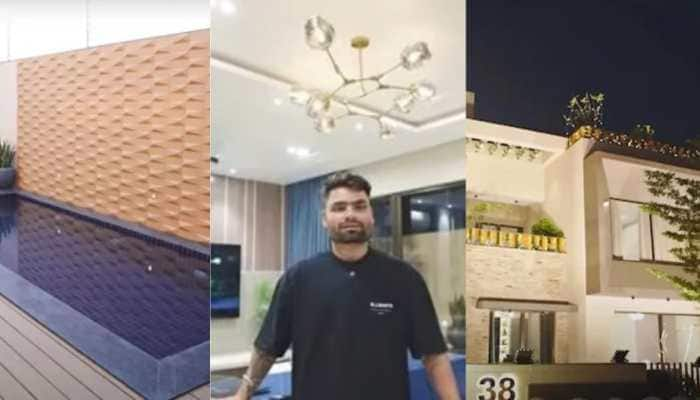Future of Facebook-WhatsApp marriage lies in hands of young & restless in India
The future of the $19 billion buyout deal of WhatsApp by Facebook in many ways lies in the hands of the young and restless in India among other emerging economies of the world.
Trending Photos
)
 Rakesh Khar
The future of the $19 billion buyout deal of WhatsApp by Facebook in many ways lies in the hands of the young and restless in India among other emerging economies of the world.
This is how:
First, Facebook has shown the most stupendous growth in India, with the social networking site gaining popularity across age groups and geographies in India. For the record, India is billed to become the largest Facebook user country in 2016. According to eMarketer, India is set to clock 150 million plus users by the end of 2014 up from about 93 million at the end of 2013. China does not allow Facebook and Indonesia is the other emerging economy with about 67 million users. Unlike India, Indonesia has a robust local social networking platform in Kaskus.
Second, Facebook is keen to push growth in India and other Asian countries primarily through the Internet. The new age users in India experience the Internet for the first time using mobile device giving them unrivalled freedom and privacy. India has surpassed Japan to become the world’s third largest Internet user after China and the United States, and its users are significantly younger than those of other emerging economies, global digital measurement and analytics firm comScore said in a report last year.
India`s official Internet population rose to 238.71 million at the end of 2013 helped by growing number of users especially in Maharashtra, Uttar Pradesh, Tamil Nadu, Gujarat and Andhra Pradesh. Maharashtra has the largest Internet subscribers at 38.78 million followed by Uttar Pradesh (22.90 million), Tamil Nadu (19.65 million), Gujarat (17.92 million) and Andhra Pradesh (17.07 million). The growth trajectory is evident from the fact that the Telecom Regulatory Authority of India (TRAI) had pegged Internet subscribers in India at 164.81 million as of March 31, 2013, with seven out of eight accessing the Internet from their mobile phones. The growth across India shows that Internet is now truly an all India phenomenon with tier 2 and 3 cities well within its reach. In fact, e-commerce sites in the recent past have reported growing traffic trends from emerging cities of the country.
Third, while WhatsApp can be used on smart phones only, Facebook launched app `Facebook for Every Phone` app has helped grow the free messaging service in the country. The Nokia Asha 501 feature phone now comes preloaded with Facebook, while leading service provider Bharti Airtel announced last December that it would offer free Facebook access in nine local languages to prepaid customers.
Fourth, the price of entry-level smart phones has dropped to around Rs 4,000, from Rs 15,000 two years ago. The operators and manufacturers are looking to add to the pool of about 60 million current smart phone owners in India. The opportunity lies in driving India’s about 800 million mobile users, an estimated 70 per cent of whom have handsets that cost below Rs, 2,000, to switch. The replacement market has actually grown the smart phone market.
Fifth, while there are no numbers available yet for India’s share of 450 million users of WhatsApp, there is no doubt that WhatsApp is growing popular by the minute as the most effective tool to communicate either individually or in a group. Indians by nature love to chat and share text, pictures and video as a group. The communication serves as an online chat with members spread all over the country or globe. The popularity of WhatsApp as a private messaging option has come about mainly because youngsters want to have a digital social life of their own away from the prying eyes of parents and elders who too are slowly but surely joining Facebook to discover lost friends and relatives.
Sixth, as is evident from falling handset prices, the price factor yet plays an important role. WhatsApp is a free service for the first year and officially the user is supposed to pay about Rs 55 per year in the second year. While officially there is no word available on whether the second year payment is enforced strictly in India, many youngsters this writer spoke to shared ways to circumvent the payment: The app is uninstalled at the end of the one year period and a fresh start app downloaded. For the record, however, the messaging service is being charged in a tiered format for Vodafone postpaid connection users with 53.19 rupees for one year, 145.38 rupees for three year pack and 202.01 rupees for a five year pack. The payment gateway is through a Google wallet. The payment issue among users in India should not be difficult to crack since majority of connections are prepaid and WhatsApp can be charged as part of either the charge card or the Internet pack card for second year of use.
Rakesh Khar
The future of the $19 billion buyout deal of WhatsApp by Facebook in many ways lies in the hands of the young and restless in India among other emerging economies of the world.
This is how:
First, Facebook has shown the most stupendous growth in India, with the social networking site gaining popularity across age groups and geographies in India. For the record, India is billed to become the largest Facebook user country in 2016. According to eMarketer, India is set to clock 150 million plus users by the end of 2014 up from about 93 million at the end of 2013. China does not allow Facebook and Indonesia is the other emerging economy with about 67 million users. Unlike India, Indonesia has a robust local social networking platform in Kaskus.
Second, Facebook is keen to push growth in India and other Asian countries primarily through the Internet. The new age users in India experience the Internet for the first time using mobile device giving them unrivalled freedom and privacy. India has surpassed Japan to become the world’s third largest Internet user after China and the United States, and its users are significantly younger than those of other emerging economies, global digital measurement and analytics firm comScore said in a report last year.
India`s official Internet population rose to 238.71 million at the end of 2013 helped by growing number of users especially in Maharashtra, Uttar Pradesh, Tamil Nadu, Gujarat and Andhra Pradesh. Maharashtra has the largest Internet subscribers at 38.78 million followed by Uttar Pradesh (22.90 million), Tamil Nadu (19.65 million), Gujarat (17.92 million) and Andhra Pradesh (17.07 million). The growth trajectory is evident from the fact that the Telecom Regulatory Authority of India (TRAI) had pegged Internet subscribers in India at 164.81 million as of March 31, 2013, with seven out of eight accessing the Internet from their mobile phones. The growth across India shows that Internet is now truly an all India phenomenon with tier 2 and 3 cities well within its reach. In fact, e-commerce sites in the recent past have reported growing traffic trends from emerging cities of the country.
Third, while WhatsApp can be used on smart phones only, Facebook launched app `Facebook for Every Phone` app has helped grow the free messaging service in the country. The Nokia Asha 501 feature phone now comes preloaded with Facebook, while leading service provider Bharti Airtel announced last December that it would offer free Facebook access in nine local languages to prepaid customers.
Fourth, the price of entry-level smart phones has dropped to around Rs 4,000, from Rs 15,000 two years ago. The operators and manufacturers are looking to add to the pool of about 60 million current smart phone owners in India. The opportunity lies in driving India’s about 800 million mobile users, an estimated 70 per cent of whom have handsets that cost below Rs, 2,000, to switch. The replacement market has actually grown the smart phone market.
Fifth, while there are no numbers available yet for India’s share of 450 million users of WhatsApp, there is no doubt that WhatsApp is growing popular by the minute as the most effective tool to communicate either individually or in a group. Indians by nature love to chat and share text, pictures and video as a group. The communication serves as an online chat with members spread all over the country or globe. The popularity of WhatsApp as a private messaging option has come about mainly because youngsters want to have a digital social life of their own away from the prying eyes of parents and elders who too are slowly but surely joining Facebook to discover lost friends and relatives.
Sixth, as is evident from falling handset prices, the price factor yet plays an important role. WhatsApp is a free service for the first year and officially the user is supposed to pay about Rs 55 per year in the second year. While officially there is no word available on whether the second year payment is enforced strictly in India, many youngsters this writer spoke to shared ways to circumvent the payment: The app is uninstalled at the end of the one year period and a fresh start app downloaded. For the record, however, the messaging service is being charged in a tiered format for Vodafone postpaid connection users with 53.19 rupees for one year, 145.38 rupees for three year pack and 202.01 rupees for a five year pack. The payment gateway is through a Google wallet. The payment issue among users in India should not be difficult to crack since majority of connections are prepaid and WhatsApp can be charged as part of either the charge card or the Internet pack card for second year of use.
Stay informed on all the latest news, real-time breaking news updates, and follow all the important headlines in india news and world News on Zee News.
Advertisement
Live Tv
Advertisement







)
)
)
)
)
)
)
)
)
)
